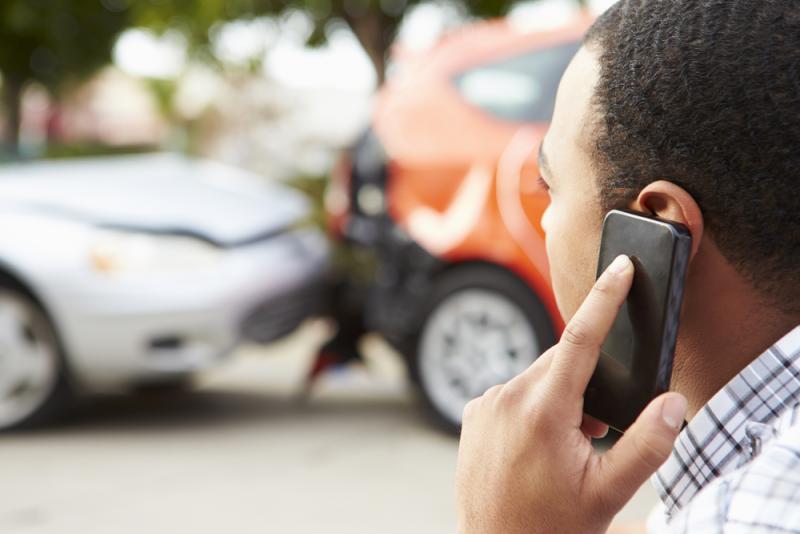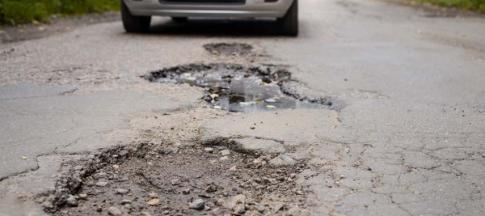
We like to make sure our customers have all the knowledge they need around claiming to help make life a little easier.
There are lots of myths surrounding claiming, and we’re here to disprove eight of them.
“It wasn't my fault, so I won't have to pay my excess.”
We often get lots of questions about excess; it’s usually not something you think about until you need to pay for it.
It’s the amount you pay (or we hold back) in the event of any claim, regardless of who's to blame for the incident.
We’re often asked: “do you pay excess if not your fault”? It depends.
If you don’t claim but a third party does, and we pay out, you don’t have to pay your excess.
Excess is always payable when you make a claim. The only way your excess can be waived is if the third-party insurer admits liability (this is specific to us).
If it's proven the accident was the other person's fault and we recover the full cost from their insurer, the excess is refunded, so you don't lose out.
“I can claim for all the items that were in my car when it was stolen.”
You can only claim part of goods value if your car gets stolen and your laptop, pram, designer purse or smartphone were inside.
Our comprehensive car insurance includes a certain amount of cover for any personal belongings that may have been in your stolen car, but the amount varies depending on your tier of cover.
Always check your policy documents before making a claim.
We recommend that you don’t leave any valuables in your car.
“Will a non-fault accident affect my insurance?”
We base insurance on risk and statistics, and every incident you have can have an impact on your renewal premium, regardless of fault.
These factors constantly change, so we can’t tell you if a certain element will affect your premium. This is why we ask ”have you had any claims or incidents, regardless of fault, within the last three years?”
It’s still classed as an incident even if you haven’t made a claim.
Your No Claims Bonus (NCB) is not affected if you’re not at fault for an incident and we recover all the money back from the third-party insurers. It’s also not affected if you have No Claims Bonus Protection or Guarantee. However, you still need to declare this to any future insurers.
“Liability is always quick to settle.”
All claims are different and finding out who’s to blame for an incident is not always straightforward. While we want to get liability and the claim settled as soon as possible, it’s not always possible to do this very quickly.
There’s no set timescale for liability and every case is judged on its merit.
Some can be decided very quickly, but if there’s a dispute we might need to gather evidence and this can prolong cases.
So, while the timescale is a grey area, we’ll endeavour to make the claims process as quick and smooth as possible.
“I want to claim from the other party's insurance so won’t have to tell my insurer.”
You must tell your insurance company of any incident involving your car, even if you don’t make a claim.
We need to know everything that goes on with your car so we have all the information should a third party wish to claim against you.
“My No Claims Bonus will only be affected if an incident was my fault.”
The NCB has the potential to make your premium cheaper and it’s something a lot of people hold dear.
When involved in an incident, there are many reasons why your NCB could be affected:
- liability is still ongoing and the claim remains open
- you’re held at fault for part or all of the claim
- we can’t recover our losses from the third party
If your circumstances change after renewal and your NCB has been allowed, our customer services team will recalculate your premium and apply a refund if applicable.
You may be eligible to protect your NCB – you need to build up four years’ worth to do so. Read our article on NCBs.
“I'm not at fault and the third party says they’re not at fault either, so it's 50/50.”
You may have heard of ‘knock for knock’ due to the number of claims that settle 50/50. But while an insurer will know you’re not at fault, there may not be any proof, so it becomes one word against the other.
There are some circumstances where a 50/50 settlement is not always appropriate. Each case can be argued based on precedence set by similar claims that went to court.
It’s not uncommon to settle a claim 70/30 or 90/10; it just depends on what happened and the available evidence.
“Using my insurer’s approved repairer to fix my car will affect its warranty – approved repairers don’t use manufacturer parts and their work is poor.”
Our approved repairers offer a lifetime guarantee on all the repairs they complete. They’ll use manufactured parts for repairs, but in some circumstances where these aren’t available, they’ll consider recycled parts.
When you have a warranty on your vehicle, they might advise that you need to use their approved repairer. A new law called the Block Exemption Rule was introduced recently which means you don’t have to use your warranty company’s approved repairer.
The warranty company might decide to invalidate your warranty – but they can only do this on the parts that have been repaired by our approved repairer. However, with the lifetime guarantee our repairer offers on these parts, you won’t lose out on any guarantee or warranty you have.
As always, if you have any questions, please don't hesitate to contact us - our claims experts will be on hand.


